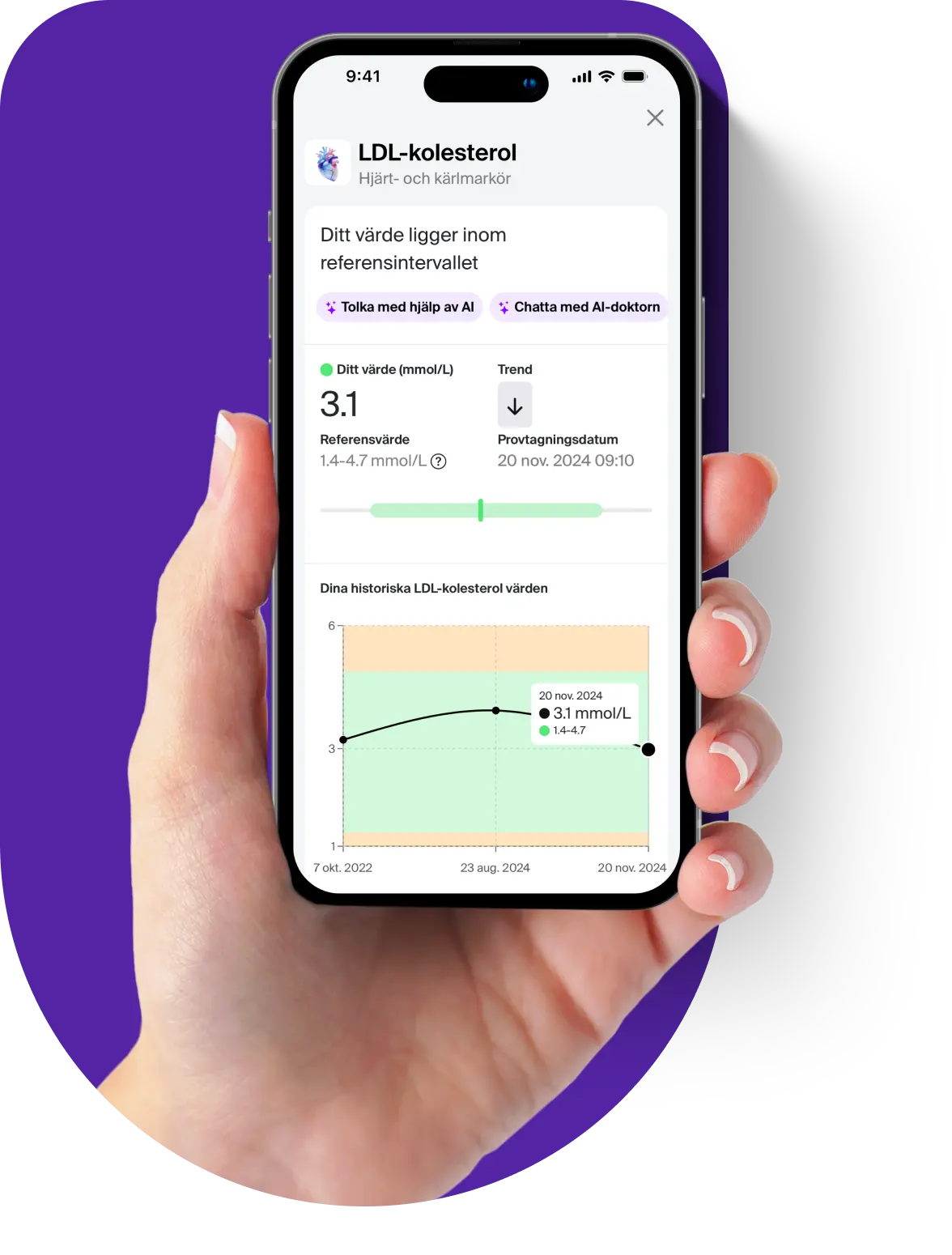What is S-hCG and why is it tested in the blood?
S-hCG is a hormone that begins to be produced shortly after a fertilized egg attaches to the uterine lining. A blood test for S-hCG is the most reliable way to confirm a pregnancy early or monitor its development.
What levels of hCG are normal during pregnancy?
S-hCG levels vary widely but follow a clear pattern during the first few weeks of pregnancy. Here are some reference values:
- Week 5: 100–5,000 IU/L
- Week 6: 1,500–53,000 IU/L
- Week 10: 41,000–210,000 IU/L
- Week 14: 24,500–131,000 IU/L
Please note that the values are indicative – it is change over time and the context that determines what is normal.
What does it mean if the hCG value does not increase?
If the hCG level does not increase as expected during early pregnancy (up to about weeks 9–11), it may indicate that the pregnancy is not developing normally, for example in the case of miscarriage or ectopic pregnancy. Normally, hCG should then double every 48–72 hours. After weeks 9–11, however, it is completely normal for hCG levels to stabilize or even decrease, as the placenta then takes over hormone production to a greater extent.
Can a high hCG level be something other than pregnancy?
Yes. In rare cases, very high hCG levels without a visible pregnancy can be due to, for example, a molar pregnancy (grapefruit pregnancy) or certain types of tumors in the ovaries or testicles. Therefore, hCG is sometimes also used as a tumor marker.
Can I do an hCG test even if I'm not pregnant?
Yes, it is possible. An hCG test can provide valuable information even if pregnancy is not suspected. It is used, among other things, in the investigation of irregular bleeding, abdominal pain or suspected miscarriage. In men, S-hCG can also be used in connection with the investigation of certain cancers, such as testicular cancer.
Do I need to prepare for an hCG test?
No, you don't need to fast or make any special preparations. The test is taken quickly via a prick in the arm by trained healthcare professionals. However, it can be a good idea to mentally prepare for the test results themselves – especially if you are being tested for something that may cause anxiety or strong emotions.



































